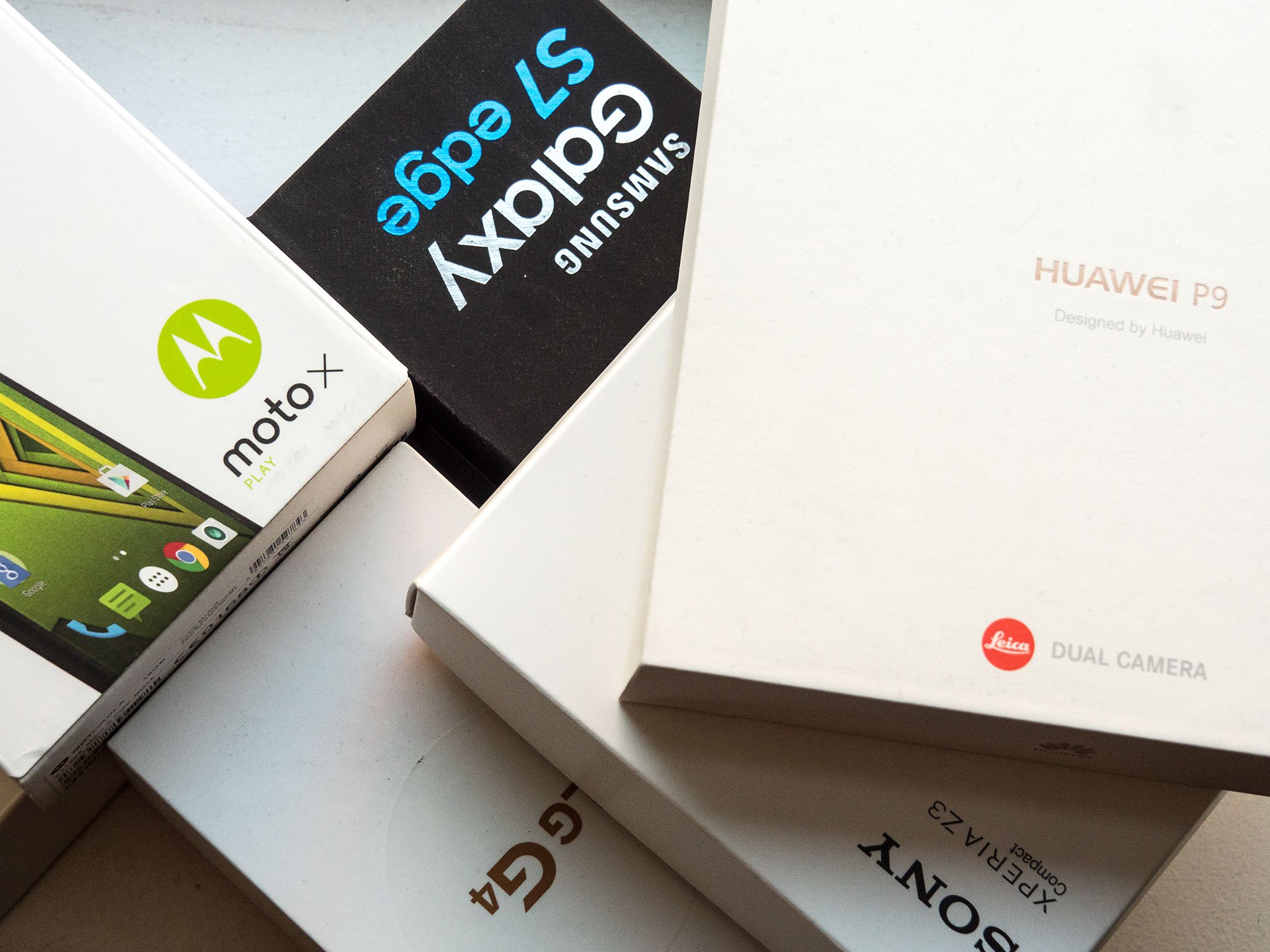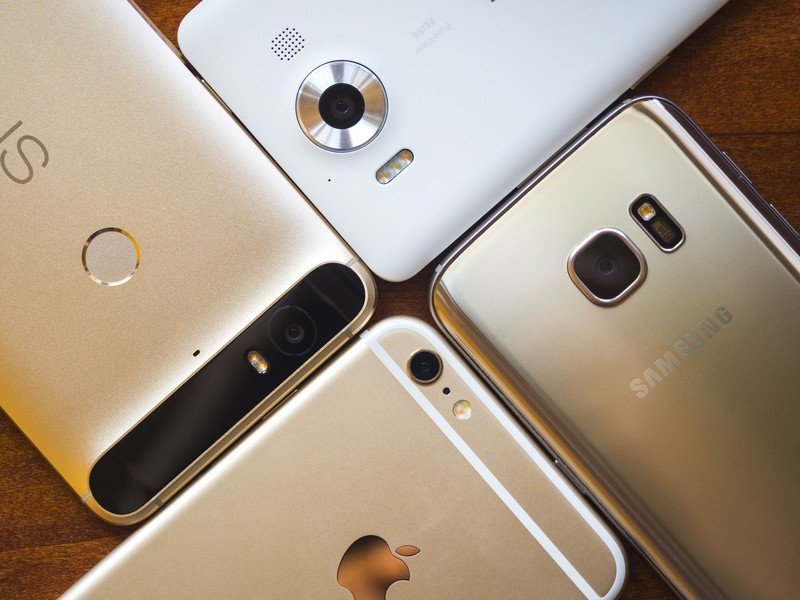Should you buy an unlocked phone in the UK?

When it's time to buy a new phone, most of us turn to the four major UK networks operators, or one of the many smaller networks that piggyback on them. But as cheaper smartphones become better and better, and the urge to upgrade to the latest and greatest handsets grows, you may have been considering the alternative — simply buying a phone unlocked and popping in your SIM.
Unlike other parts of the world, buying a new, unlocked smartphone isn't a new concept for British consumers. But if you're thinking of taking the plunge, there are a few factors worth considering. Check past the break for a quick primer on buying an unlocked phone in the UK.
Why go unlocked?
First, a few obvious advantages. If you buy an unlocked phone outright, you'll trade a higher up-front cost for lower monthly fees from your network provider. The big players like EE, O2, Vodafone and Three have cheaper SIM-only plans that let you bring your own phone to their network as opposed to picking up a subsidized handset on contract. And so with a few exceptions, you're generally better off in the long run.
More freedom, more control.
Buying unlocked also lets you avoid getting roped into the credit agreements involved with taking out a contract, as you can always take advantage of the many great Pay As You Go deals out there.
Because you're not paying towards the cost of your phone across the life of your contract, you'll pay less each month. In many cases you'll also be able to opt for a shorter contract — many providers offer 12-month SIM-only deals. Some, including Three, even have rolling one-month contracts that let you cancel at any time.
UK providers use (for the most part) the same standards and cellular frequencies, and so unlocked phones sold in the UK will work across any of the country's mobile networks — from the big four to smaller players like GiffGaff and Virgin Media.
The cheaper the phone you're buying, the more incentive you have to go unlocked.
An unlocked phone isn't tied to any particular network, and for that reason it'll often have greater resale value when you're done with it. That's alongside the freedom you'll gain from being able to switch between providers without changing your handset. And if you're traveling abroad, it's easy to switch to a local SIM in an unlocked device, avoiding potentially expensive roaming charges.
Be an expert in 5 minutes
Get the latest news from Android Central, your trusted companion in the world of Android
And in the Android and Windows world, unlocked phones often have the benefit of receiving software updates before their carrier-branded siblings, as manufacturers don't need to wait for networks to add their own cruft into the mix before pushing new firmware out.
Finally, it's worth remembering that budget phones like Motorola's Moto G can be so cheap to buy outright that it's often not worth getting roped into a multi-year contract when you can pay £100 or so upfront and be done with it. The cheaper the phone you're buying, the more incentive you have to go unlocked.

How to make sure you're buying unlocked
If you're buying on the high street, Carphone Warehouse is the biggest nationwide option for buying new unlocked phones. If you're buying a Samsung phone, it's also worth considering the firm's collection of Samsung Experience Stores. At the time of writing there are 15 throughout the UK. All are operated by Carphone Warehouse, and as such prices are pretty much the same.
And of course if you're buying an iPhone, your local Apple Store will gladly sell you an unlocked 4, 4.7 or 5.5-inch model of your choosing.
There are plenty of outlets to choose from, whether you're buying online or on the high street.
While Carphone Warehouse (and its Samsung stores) will sell you unlocked phones at their full retail price, it's worth remembering that phones bought on contract at CPW are generally the SIM-unlocked versions. So if you're buying on-contract with Carphone you can often get the best of both worlds — a subsidized price for your phone, and and unlocked handset in your pocket.
The same goes for Carphone Warehouse's online-only subsidiary, BuyMobiles.net.
Buying unlocked on the high street is often expensive, though. And there are a number of smaller independent retailers like Unlocked Mobiles, Clove and even eBay sellers that are often cheaper. With the latter, it's always best to exercise common sense and buy from reputable sellers with high feedback scores — especially with something as valuable as a smartphone.
Retail behemoth Amazon is also worth considering — however prices tend to fluctuate wildly depending on seller, and it's worth double-checking model numbers to ensure you're getting the unlocked UK or European version of the handset you want.
Are there any trade-offs? Things to watch out for?
Aside from the fact that you're paying more up front, there are a few potential caveats to be aware of.
Depending on the model you're choosing and the vagaries of your carrier's contract deals, there are times when it can be cheaper in the medium or long-term to pick up a subsidized phone on contract, sell that phone and use your own unlocked handset instead. For example, if a carrier wants to get rid of stock of a certain model, it might offer it with a tiny upfront price and a monthly fee not far off its SIM-only prices. In this case, if you're happy being locked into a contract for the standard 24 months, it might be worth taking the plunge.
The other thing worth considering is specialized built-in services like Wifi calling and VoLTE (voice over LTE). Traditionally these have been restricted to carrier-branded versions of phones — with the exception of the iPhone. Although this is slowly starting to change with unlocked versions of newer Android phones like the Samsung Galaxy S7 and HTC 10, it's worth checking before you buy if these features are important to you.
UK readers, did you buy your phone unlocked, or are you using a carrier-branded model? Do you plan to change the way you buy next time around? Hit the comments and let us know

Alex was with Android Central for over a decade, producing written and video content for the site, and served as global Executive Editor from 2016 to 2022.
